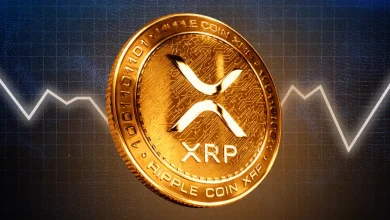
Philippines Senator Bam Aquino has proposed placing the entire national budget on blockchain.
The move builds on the government’s existing Polygon-based system, with BayaniChain backing the push for accountability.
The proposal mirrors U.S. efforts to publish economic data on-chain.
The Philippines could soon make history. Senator Bam Aquino has proposed placing the country’s entire national budget on the blockchain, giving citizens the power to track every peso of government spending.
Sounds interesting, but is it practical? What’s the idea behind it? Read on.
Aquino’s Big Push at Manila Tech Summit
Speaking at the Manila Tech Summit on Wednesday, Aquino said transparency was at the heart of his plan.
“No one is crazy enough to put their transactions on blockchain, where every single step of the way will be logged and transparent to every single citizen. But we want to start,” he told the audience.
Aquino added that if the proposal moves forward, the Philippines could be the first country in the world to do it. “I think we’ll be the first country to have our budget on the blockchain,” he said, while admitting he’s unsure if the idea will get enough political support.
Blockchain Already in Use
The idea builds on systems already in place. The Department of Budget and Management (DBM) has launched a blockchain platform on Polygon that publishes key fiscal documents like Special Allotment Release Orders (SAROs) and Notices of Cash Allocation (NCAs).
Local firm BayaniChain, which powers the platform, said Aquino’s vision fits with their mission. Co-founder Paul Soliman explained that blockchain isn’t a complete fix for corruption but makes accountability harder to avoid.
“His vision aligns with ours, building more transparent and accountable systems for the Philippines,” Soliman said.
A New Global Policy Trend?
The Philippines isn’t alone in exploring blockchain for governance.
Just a day before Aquino’s announcement, U.S. Commerce Secretary Howard Lutnick revealed that his department will begin publishing economic data on-chain, starting with GDP figures, under the Trump administration’s pro-crypto push.
Both developments highlight a global trend: governments are starting to use blockchain not just for finance, but for transparency and trust.
What Comes Next
For now, Aquino’s blockchain budget plan is still at the idea stage. Even if it moves ahead, challenges remain – from political backing to scaling the system for an entire national budget.
But if it does move forward, the Philippines could set a global example of how blockchain can be used beyond crypto markets, showing that technology can reshape how governments manage and share public funds.
Never Miss a Beat in the Crypto World!
Stay ahead with breaking news, expert analysis, and real-time updates on the latest trends in Bitcoin, altcoins, DeFi, NFTs, and more.
FAQs
Senator Bam Aquino proposed placing the entire national budget on a public blockchain. This would allow citizens to track all government spending in real-time for full transparency.
Blockchain creates an immutable, public ledger. Every transaction is permanently logged and visible to all citizens, making it harder to alter records or avoid accountability.
Yes. The U.S. Commerce Department announced it will publish economic data on-chain, signaling a growing global trend of using blockchain for governmental transparency.
Trust with CoinPedia:
CoinPedia has been delivering accurate and timely cryptocurrency and blockchain updates since 2017. All content is created by our expert panel of analysts and journalists, following strict Editorial Guidelines based on E-E-A-T (Experience, Expertise, Authoritativeness, Trustworthiness). Every article is fact-checked against reputable sources to ensure accuracy, transparency, and reliability. Our review policy guarantees unbiased evaluations when recommending exchanges, platforms, or tools. We strive to provide timely updates about everything crypto & blockchain, right from startups to industry majors.
Investment Disclaimer:
All opinions and insights shared represent the author's own views on current market conditions. Please do your own research before making investment decisions. Neither the writer nor the publication assumes responsibility for your financial choices.
Sponsored and Advertisements:
Sponsored content and affiliate links may appear on our site. Advertisements are marked clearly, and our editorial content remains entirely independent from our ad partners.








